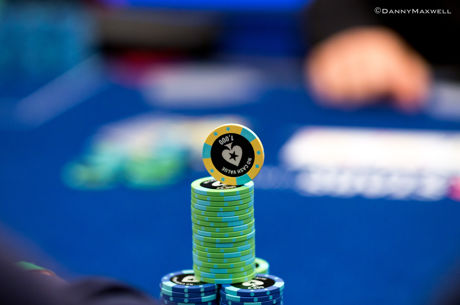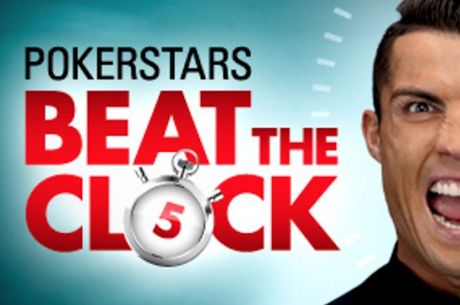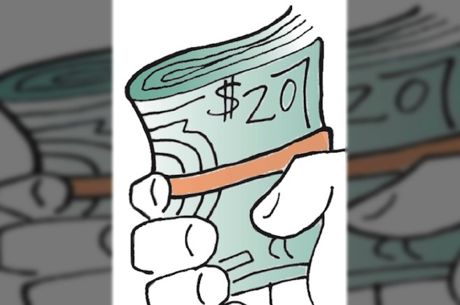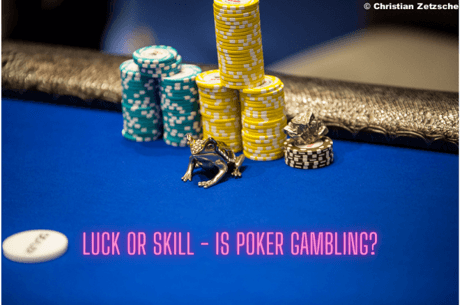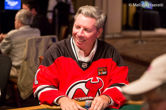"No Cigar," or How to Exploit the Psychology of the Near-Miss
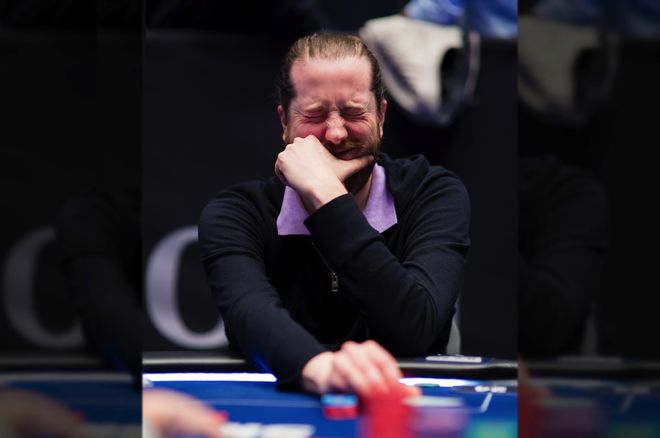
While playing poker on my recent trip back to Las Vegas, I was on the lookout for hands, stories, and observations I could write about when I got home. For that reason, a remark from a player that I normally would have ignored had me scribbling notes.
The comment was innocuous enough, and said with a smile: "If that six had been a seven, you would have been in big trouble."
It came during what Tommy Angelo has dubbed "sixth street" — the information-rich time right after a hold'em hand ends when many players suddenly open up about what they did, and why.
The player in question would have made the nut straight with a river 7x, but the 6x that came instead left him with just one small pair to his opponent's flopped set.
I believe that he felt the urge to make this comment only because the six was close to a seven. If that card had been, say, an ace, he probably would have felt that he missed his draw — like most of us do most of the time — and shrugged it off as not worthy of mention.
I think it was the sense that he almost hit a big hand, in a potentially lucrative situation, that set off his friendly "if" thought. Perhaps the visual similarity of the six and seven also played a role — for a split second, he might have thought that he actually had hit his gin card.
The reality, of course, is that when only a seven will make your hand, it makes no difference whether the card that isn't a seven is a six, a deuce, a jack, or a tarot card. As the old saying goes, "A miss is as good as a mile." The American Heritage Dictionary of Cultural Literacy offers this interpretation of the maxim: "A near miss is still a miss and therefore no better than missing by a great margin."
But it feels different, doesn't it?
There's some deep psychology behind this phenomenon. For many things in our evolutionary history, it was of supreme importance to know when you were close but not quite there.
It's not surprising that our brains react differently when we sense that we're close to a desired object than when we're way off target.
Infant mammals — including us — are equipped with a set of special neural algorithms that use the senses of smell and touch to home in on the source of their mothers' milk. This requires determining whether it's getting closer or farther away, and moving accordingly. Learning to hunt with a spear requires step-wise improvement in accuracy, which can only be accomplished by discerning between throws that came close to the target and those that were badly astray, and then making the necessary refinements to one's aim.
So it's not surprising that our brains react differently when we sense that we're close to a desired object than when we're way off target. The problem is that this important mental tool can also mislead us.
I first learned about how casinos take advantage of this phenomenon from a 2012 episode of the public radio program This American Life — one that also featured poker pro Andy Bloch talking about blackjack strategy. By coincidence, the day I sat down to write about this subject, a new article about it was shared by a friend on Twitter. It's a piece by John Rosengren in the December 2016 issue of The Atlantic titled "How Casinos Enable Gambling Addicts."
In the article, Rosengren discusses the psychology of the near-miss at some length. He explains how the microprocessor control of modern slot machines' mechanical or virtual reels has "enabled a deliberately misleading feature, the 'near miss.' That's when a jackpot symbol appears directly above or below the payline. The intent is to give the player the impression of having almost won — when, in fact, he or she is no closer to having won than if the symbol had not appeared on the reel at all."
He goes on to tell how some slot machines are in fact "programmed to offer up this near-miss result far more often than they would if they operated by sheer chance." Thinking they almost hit the jackpot, "the psychological impact can be powerful, leading players to think, I was so close. Maybe next time…."
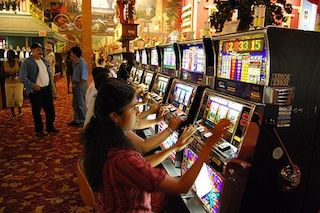
He shares some additional research going back to the famous behaviorist B.F. Skinner showing how near-misses keep players playing longer, and how the "effect is even stronger for gambling addicts, whose brains respond to near-misses more like wins than losses."
I suspect, but do not know, that the same idea guides the non-consecutive placement of numbers on the roulette wheel. If the ball falls on, say, 29, you will feel that you just missed not only if your bet was on 28 or 30, but also if your bet was on 7 or 18, the two numbers adjacent to 29 on the wheel. Twice as many chances to feel that you almost won means double the chance that the excitement of having been close will prompt you to place another bet.
This "near-miss" feeling can come up in poker, too. One obvious way that I witnessed it occurring at the Orleans last week was in the random draw for hourly cash prizes. One of the big monitors displayed the winner's table and seat number. Predictably, the people in the spots adjacent to the lucky recipient would react strongly: "Just one seat off!" Those at the table numbers one higher and one lower than the selected table would also say things like, "They almost picked us."
Surely some fraction of those patrons will stick around and play a little longer than they otherwise would have, because of the illusion that they were almost selected, and therefore probably will be soon.
More importantly, I'm convinced that the same misfiring brain circuits can be triggered by specific card patterns during the play of a poker hand. Remember how it feels to flop an open-ended straight-flush draw? You can practically taste that monster hand coming your way. You're so close!
In reality, though, there are only two cards in the deck that will make you that monster of monsters. Even with two streets on which to catch, it will happen only about 8% of the time. But the other 92% you're left with that tantalizing feeling that you were almost there — though you really weren't.
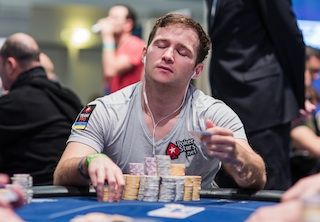
It's common in low-stakes games to encounter players who simply can't resist playing any two suited cards, even though the probability of making a flush by fifth street is only about 6%. The brains of these players, I believe, have been hijacked by the squirt of feels-so-good dopamine not only on the relatively rare occasions that they make the flush, but also by all the times that they end up with four of a suit, only to be disappointed in the river. Almost hit it, they tell themselves. I'll get it next time.
It's valuable to be watching for this kind of player. He will typically be willing to pay way more than is prudent for a chance to make his draw, giving you immediate EV profit. When the flush draw hits, if you can't beat it, you can just fold, thus depriving him of the implied odds that he was counting on.
Even better, though, is that this kind of player will usually be unable to fold the flush he paid so much to hit — even when he suspects, or should suspect, that you have a higher flush or a full house. He is therefore extremely vulnerable to a larger-than-average value bet when that third suited card hits and you hold the winner.
Players who are misled by the experience of apparent closeness that is actually just randomness will identify themselves if you're paying attention. They'll make the post-hand comments about how they almost hit the winner. They'll exult about having almost been picked for the drawing. They'll tell you about how they almost made a big win in roulette, keno, craps, or a lottery, but were just one number off.
When you hear such a tip-off, watch that player's exposed hands and see if it appears that he's playing bad suited cards (e.g., 9♠3♠) that a more discerning player would fold. If so, you're likely dealing with an inveterate flush-draw chaser, which will tell you how to extract the most money from him when he's on the hunt.
Robert Woolley lives in Asheville, NC. He spent several years in Las Vegas and chronicled his life in poker on the "Poker Grump" blog.

